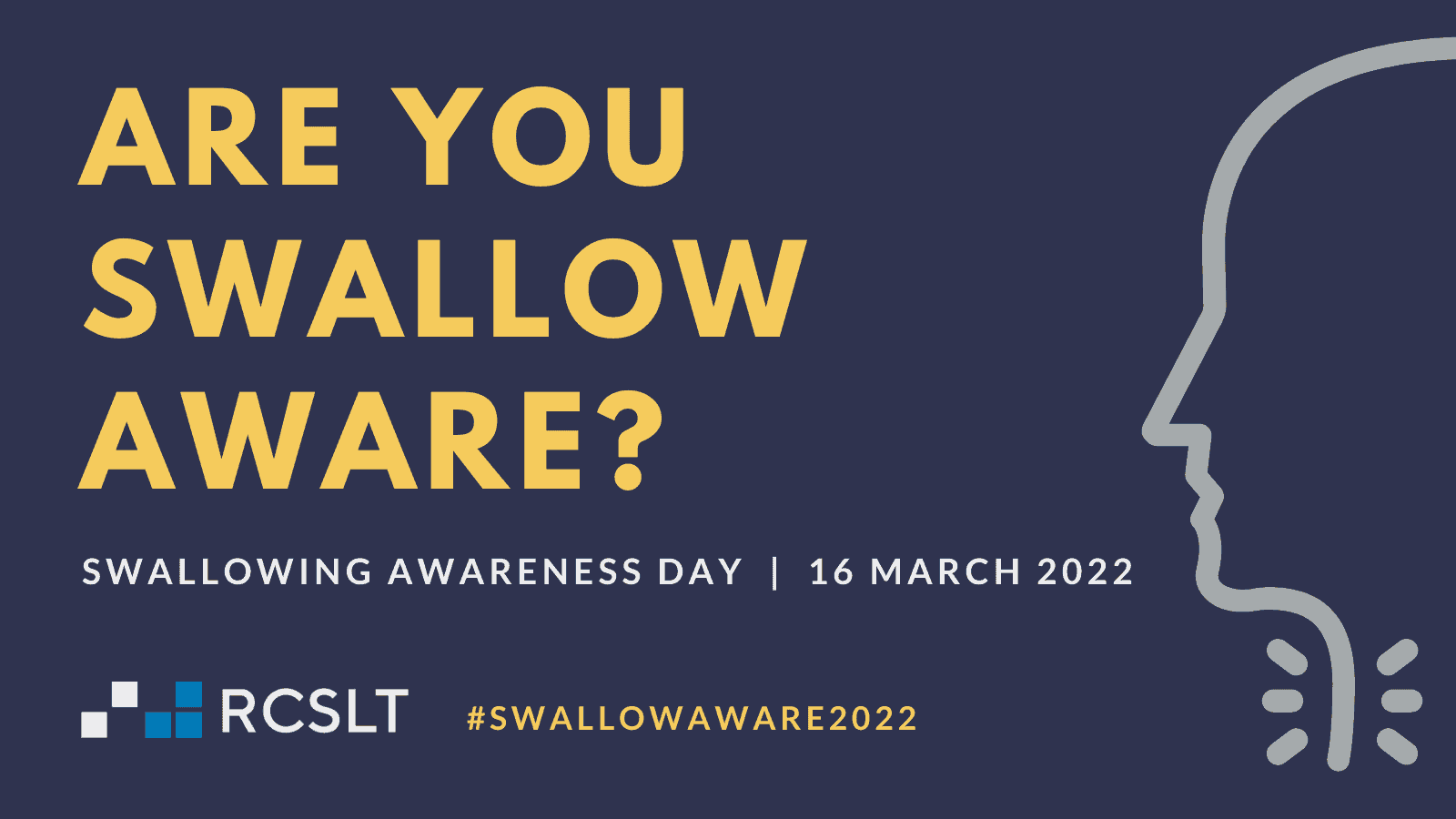Swallowing Awareness Day aims to raise awareness of the impact of living with eating, drinking and swallowing difficulties, and shines a light on how speech and language therapists (SLTs) can help.
What is dysphagia?
Dysphagia is the medical term for swallowing problems. People with dysphagia may have difficulties swallowing certain foods and/or liquids and in some cases people may not be able to swallow at all. Dysphagia can put people at risk of aspiration (food and/or drinks going the wrong way) which can contribute to chest infections and a poorer quality of life. Dysphagia can be very distressing for those who experience it.
Dysphagia can be caused by a range of different medical conditions including acquired neurological conditions (e.g. stroke, brain injury), progressive neurological conditions (e.g. motor neuron disease), obstructive causes (e.g. head and neck cancer) and can be a symptom of other medical conditions.
It can be an acute presentation which resolves quickly and for some people it can be a chronic condition which they live with for the rest of their lives.
Speech and Language Therapists (SLTs)
At STEPS, we have a dedicated team of speech and language therapists, who work as part of our interdisciplinary team.
When a client has dysphagia, our SLT team will complete a detailed assessment and devise a swallow rehabilitation programme.
This may include:
- Specific swallowing exercises to strengthen the swallowing muscles
- Compensatory strategies (postures which make swallowing safer or more comfortable)
- Prescribing texture modified food and drinks inline with the International Dysphagia Diet Standardisation Initiative (IDDSI).
- Oral trials (for clients who are progressing from being nil by mouth)
- Observing and monitoring the client transition between the IDDSI levels and modifying their diet accordingly
- Postural modifications
- Introducing the Biozoon kit – which modifies liquids into a foam to allow a client with dysphagia to taste again in a low-risk consistency.
Biozoon is a light, airy foam created in a clients chosen flavour, which can then be spooned off and served to them for an intense taste experience. This is a low risk option which can enhance the quality of life for a person who is not longer able to safely manage an oral diet.
Food at STEPS

At STEPS, food is a big part of each clients rehabilitation programme. Most of our clients are residential, so it is vital that they enjoy every single meal.
Our chefs are dedicated to delivering nutritious and tasty meals and work closely with our clients and the SLT team to design menus that meet the clients’ individual requirements and food that is safe to eat with no risk of choking.
For our clients who struggle to swallow, food is prepared using the IDDSI framework. This framework consists of a continuum of 8 levels (0-7), where drinks are measured from Levels 0-4, and foods are measured from Levels 3-7.
For clients with difficulties swallowing, a speech and language therapist will prescribe a diet and fluid level which reduces the risk of aspiration and maximises oral intake. The level prescribed is based on thorough assessment by the SLT.
#swallowaware2022
